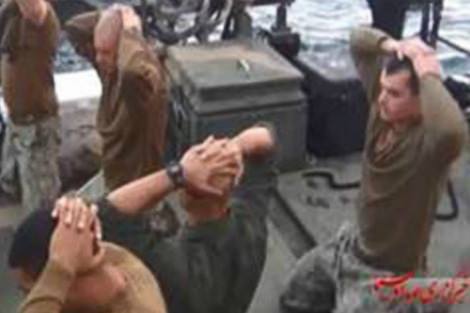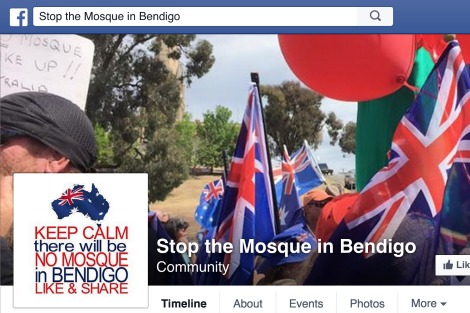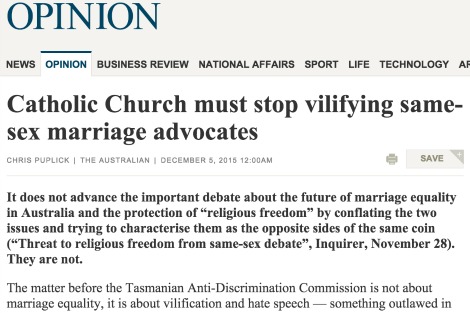Keywords: Freedom Party
There are more than 200 results, only the first 200 are displayed here.
-

INTERNATIONAL
- Justin Glyn
- 18 January 2016
2 Comments
The US, while backing Saudi Arabia, seems to be increasingly exasperated with how far it has to stick its neck out for its ally. Relationships with Iran, by contrast, have improved recently. The difficulty is that sections within both Iran and Saudi Arabia's governments seem to see a certain short-term interest in tearing the region apart. Australia, which has full diplomatic ties with Iran, a strong trade partnership with Saudi Arabia, and the ear of the US, can play an important diplomatic role.
READ MORE 
-

AUSTRALIA
- Fatima Measham
- 12 January 2016
6 Comments
A series of protests against a mosque in Bendigo and the launch of an Islamophobic party in Perth may be cause for concern, but only if political leaders fail to invalidate fringe views. Under Tony Abbott, the conflation of Islam and extremism became mainstream. Corrections regarding racial vilification and incitement are most properly determined in the court, so it is not Muslims or lefties who are oppressing these views but the laws that operate in the secular democracy they purport to defend.
READ MORE 
-

RELIGION
- Frank Brennan
- 11 December 2015
39 Comments
Chris Puplick, a former senator and former president of the NSW Anti-Discrimination Board, is one of a rising chorus expressing strong objections to the Australian Catholic bishops daring to evangelise and speak publicly about their views on same sex marriage. I too would be very upset if my bishops were saying, as Puplick claimed in an opinion piece in The Australian, that homosexuals are 'seriously depraved, intrinsically disordered, less than whole and messing with kids'. But they're not.
READ MORE 
-

AUSTRALIA
- Frank Brennan
- 10 December 2015
I first met this Tony on my regular visits here to Darwin when he was working at the North Australian Aboriginal Legal Aid Service and then when he set up the mediation services under the auspices of Anglicare. In later years I knew him when he was your Anti-Discrimination Commissioner. He was a quiet, considered, gentle, strong and principled man. On Human Rights Day, it is only fitting that I honour Tony by offering some reflections on the architecture for human rights in Australia, on the contemporary human rights controversies, and on the way forward for better protection of the human rights of Aborigines and asylum seekers, two marginalised groups who had a special claim on Tony's sympathies.
READ MORE
-

RELIGION
- Frank Brennan
- 04 December 2015
1 Comment
'Tonight, gathered here in the Southern Cross Club in the national capital, gathered as Eureka's children. We affirm that there is room for everyone under the Southern Cross. I hope you will return to Canberra carrying the Southern Cross flag when we proclaim the Australia Republic on 1 January 2020 which will be two elections after Australia last had a monarchist leader of a major political party. Tony Abbott is the last of his type. Whether the prime minister honoured to witness the proclamation is Malcolm Turnbull, Bill Shorten or another matters not.' Annual Dinner for Eureka's Children, Southern Cross Club, Canberra, 3 December 2015.
READ MORE
-

RELIGION
- Frank Brennan
- 03 December 2015
The consideration of medico-legal problems in the public square of a pluralistic democratic society keeping pace with profound technological change is often marked by simplistic assertions, precluding considerations of comprehensive world views, whether religious or philosophical. It is now commonplace for doctors to be told to leave their consciences at the door, as their patients are consumers and they are suppliers and of course the market decides. Debates about law and policy are often resolved with simplistic assertions about individual rights and autonomy, with little consideration for the public interest, the common good, and the doctor-patient relationship. Even conscience is said to be a matter for contracting out. This evening I ask whether there are more compelling ways to resolve medico-legal dilemmas, while conceding a limited role for law in determining the range of acceptable answers.
READ MORE
-

INTERNATIONAL
- Justin Glyn
- 19 November 2015
12 Comments
It is possible to find 'texts of terror' in Jewish, Christian and Muslim Scriptures. They need to be responsibly understood and explored with a close understanding of their context. We did not demand all Catholics stand up and denounce every IRA attack, nor that all Christians apologise for Anders Breivik. Similarly, why should we expect all members of a religion with over a billion adherents with multiple ancient variants to actively disown every horror claimed to have been committed in its name?
READ MORE 
-

AUSTRALIA
- Fatima Measham
- 26 October 2015
22 Comments
A series of protests against a mosque in Bendigo and the launch of an Islamophobic party in Perth may be cause for concern, but only if political leaders fail to invalidate fringe views. Under Tony Abbott, the conflation of Islam and extremism became mainstream. Corrections regarding racial vilification and incitement are most properly determined in the court, so it is not Muslims or lefties who are oppressing these views but the laws that operate in the secular democracy they purport to defend.
READ MORE 
-

- Frank Brennan
- 18 September 2015
Pope Francis's concerns are not narrowly dogmatic or pedagogical but universally pastoral. He knows that millions of people, including erstwhile Catholics, are now suspicious of or not helped by notions of tradition, authority, ritual and community when it comes to their own spiritual growth which is now more individual and eclectic. He wants to step beyond the Church's perceived lack of authenticity and its moral focus on individual matters, more often than not, sexual. He thinks the world is in a mess particularly with the state of the planet — climate change, loss of biodiversity and water shortages, but also with the oppression of the poor whose life basics are not assured by the operation of the free market, and with the clutter and violence of lives which are cheated the opportunity for interior peace. He is going to great pains to demystify his office. He wants all people of good will to emulate him and to be both joyful and troubled as they wrestle with the probl
READ MORE
-

- Frank Brennan
- 01 September 2015
1 Comment
If you want to form government in Australia and if you want to lead the Australian people to be more generous, making more places available for refugees to resettle permanently in Australia, you first have to stop the boats. If you want to restore some equity to the means of choosing only some tens of thousands of refugees per annum for permanent residence in Australia from the tens of millions of people displaced in the world, you need to secure the borders. The untrendy truth is that not all asylum seekers have the right to enter Australia but that those who are in direct flight from persecution whether that be in Sri Lanka or Indonesia do, and that it is possible fairly readily (and even on the high seas) to draw a distinction between those in direct flight and those engaged in secondary movement understandably dissatisfied with the level of protection and the transparency of processing in transit countries such as Malaysia and Indonesia. The popular evil is that political
READ MORE
-

AUSTRALIA
- Andrew Hamilton
- 20 August 2015
9 Comments
Recent weeks' events in federal politics stretch the imagination. The search for historical parallels brought me to the start of the Burke and Wills Expedition to the Gulf of Carpentaria, the disappearance of Azaria Chamberlain, and the race that saw Fine Cotton unravel. Each of these events was characteristically Australian. In Les Murray’s memorable phrase, they all had sprawl: the mingling of excess, overweening self-confidence, and the cutting of corners.
READ MORE 
-

INTERNATIONAL
- Daniel Read
- 18 August 2015
12 Comments
The ongoing drama over leadership of the UK Labour Party is raising the possibility of further fractures in the politics of austerity, not just in Britain, but across Europe. The entire political edifice of British politics has shifted so far to the right that even a somewhat inoffensive endorsement of state ownership, anti-austerity politics and trade union support, alongside scrapping the UK's nuclear deterrent and questioning our continued membership in NATO, can appear dangerously radical.
READ MORE 